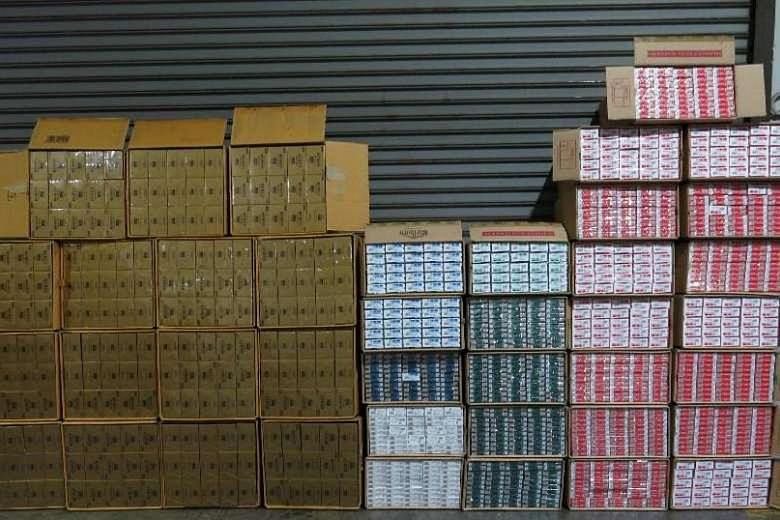Last September, Singapore Customs officers seized a large shipment of wallets, purses and bags suspected to be counterfeit, while inspecting a container coming in from China.
Two months later, they seized some 130 tonnes of counterfeit rice shipped in from India. The rice had a similar trademark to that of a Singapore-registered brand, whose rightful owner had alerted the officials to the shipment.
To be sure, that such discoveries are made periodically should come as little surprise, given the trade volumes that Singapore's port - one of the busiest transhipment hubs in the world - handles. With more than 30 million containers passing through every year, a certain proportion would be expected to contain counterfeit or smuggled goods. However, the Republic's performance can be improved when it comes to dealing with such shipments.
Singapore ranked seventh out of 17 Asian economies surveyed, based on a survey conducted by the Economist Intelligence Unit in September last year. It came behind regional players such as Malaysia, Hong Kong, South Korea and Japan, and has drawn some criticism for not doing enough to monitor its trade. It has been reported that as much as 2 per cent of the world's counterfeit goods are shipped through Singapore.
The country has also been tagged as a hub for contraband cigarettes - according to reports, 15 per cent of cigarettes smoked here are smuggled in. The impact goes much further than lost taxes; sales of such cigarettes have been linked to the funding of organised crime and even terrorism.
Such findings and proposals do not augur well for a country that has wowed the world with its progress in research and innovation and, with it, the creation of intellectual property (IP).
Having such illicit goods pass through Singapore undermines its reputation as a creator and protector of IP. The Republic needs to protect IP better by improving its oversight over the flow of goods that may infringe such property.
What can be done?
For a start, some border enforcement procedures could be simplified. At the moment, different aspects of border controls are managed by different departments.
Counterfeit goods imported into Singapore by human traffic through airports are handled by the Immigration and Checkpoints Authority as well as the police, while goods imported through logistics companies or courier services are under the purview of Customs.
The enforcement processes are quite different for cases handled by different departments. It is often confusing for rightful owners who are not familiar with the enforcement processes.
Perhaps a central system of some sort can be set up to help coordinate such efforts. It is essential to create a system that would remove some of the existing bureaucracy in the current processes.
Customs does act on such information if brand owners lodge a notice informing officials of suspected fake goods being imported. This empowers officers to detain a particular shipment on arrival or before it is shipped onwards.
This ex officio approach, however, requires written notice. This can take time to process, increasing the lag between application and enforcement. Customs officers may also be unfamiliar with the trademarks and logos, which can create challenges in field checks.
One system that provides for a stronger partnership between enforcement agency and businesses - and which enables greater proactive measures by both sides - is the recordal system. This allows IP rights owners to pre-register their trademarks with Customs.
Detailed information and images of their trademarks, logos and brand names enable border officials to proactively monitor and check imported goods for IP infringements when they are alerted to suspect shipments.
Recordal or similar systems have been used with much success in places such as the United States, Hong Kong, Japan, Australia, Philippines, Thailand and Vietnam, and bear several advantages over the ex officio approach.
Such a system eliminates the need for paper applications and provides a single point of contact for all stakeholders, so that Customs officials also know who to contact should they discover fake goods during routine checks.
It also helps them to focus their efforts - they would need to look out for infringements of only trademarks that have been registered, and expend less effort on IP whose owners appear less interested in curbing illicit goods.
A comprehensive system to record trademarks and exchange IP information more effectively will enable greater proactive measures to stem the flow of counterfeit goods.
Ultimately, it will give Singapore a competitive advantage in a trade environment that is moving towards greater protectionism, enhance the reputation of our ports and show our commitment to the protection of intellectual property rights.
•The writer is an intellectual property lawyer from law firm Robinson.

